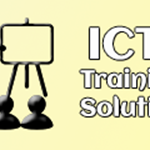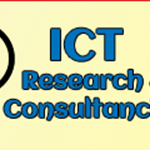Diploma in Early Childhood Care and Education (DECE)
The Diploma in Early Childhood Care and Education programme is designed to produce specialized teachers who can work in different early childhood institutions that are on increase, child focused NGOs, and in any other area that requires Early Childhood Care and education related skills. The attainment of Diploma in ECE may also be used as entry qualifications to degree programmes. Students seeking advanced degrees may benefit from this Diploma programme because they may better be prepared for further study in a wide range of disciplines. Some students may become interested in the advanced study of ECCE specialization after having completed the certificate.
Programme Summary
Course Name: Diploma in Early Childhood Care and Education (DECE)
Programme: Early Childhood Education
UQF level: UQF Level 6 Ordinary Diploma
Duration: 2 year
Total Units: 24 Units
Mode of Delivery: Blended Mode
Programme Informations
The entry qualifications to this Certificate in Early Childhood Care and Education s programme of the Open University of Tanzania [OUT] are:
OPTION I
Certificate of Education (Ordinary Level) or equivalent, with passes in FOUR approved subjects, obtained prior to the sitting of the Advanced Certificate of Secondary Education Examination (A.C.S.E.E.) or equivalent.
(b) One of the following combinations of passes in Advanced Certificate of Secondary Education Examination (A.C.S.E.E.) or equivalent;
Either
(i) One principal Level passes (in appropriate subjects) and one Subsidiary pass or
(ii) An appropriate equivalent Certificate approved by the Senate of The Open University of Tanzania. The certificate must be of duration of at least one year.
OPTION II
Candidates who have satisfied completed Form Four with a minimum passes in 4 subject and have undergone training for about 9 months and obtained a certificate qualification equivalent to NTA level 5 or NQF level 5 may be considered for admission
OPTION III
Candidates with awards from other Institutions of Higher Learning will be considered on their own merit. These include a certificate, or a Diploma from other fields, or degree or an advanced Diploma in a relevant field.
OPTION IV
Either a candidate must possess a certificate with at least 3.0 GPA or ‘C’ average grade in specified fields such as: Certificate in special education; Certificate in education; Certificate in primary teacher education; Certificate in early childhood education; Certificate in technical education; Certificate in educational management and administration; Certificate in open and distance learning; Certificate in curriculum design and development; Certificate in business education; Certificate in ICT; Certificate in computer science; Certificate in languages; Certificate in Guidance and Counseling; Certificate in community development; Certificate in social work; Certificate in Assistive Technology; Certificate in audiology; Certificate in Physiotherapy; Certificate in Sign Language; Certificate in Adult Education; Certificate in Rehabilitation studies; Certificate in Hearing Sciences and Audiology; PLUS additional entry qualifications for those without a Certificate in early childhood education:
(1) A training in early childhood education or
(2) A training in nursery issues or
(3) Experience in services for children in their homes or children with disabilities.
- LEVEL 1
COURSE CODE | COURSE NAME | Status | Credits |
|
ODE 010 | Child Growth and Development | Core | 10 |
|
ODE 011 | Teaching Methods and Material Development for Young Children | Core | 10 |
|
ODE 012 | Curriculum Development in Early Childhood Education | Core | 10 |
|
ODE 013 | Family, Child Care, and Nutrition | Core | 10 |
|
ODE 014 | Philosophical Foundations of Early Childhood Development | Core | 10 |
|
ODE 015 | Language and Literacy in Early Childhood | Core | 20 |
|
ODE 016 | Mathematics in Early Childhood Education | Core | 20 |
|
ODE 017 | ICT in Early Childhood Education | Core | 10 |
|
ODE 026 | Micro-Teaching | Core | 10 |
|
TOTAL CREDITS | 110 | |||
2. LEVEL 2
COURSE CODE | COURSE NAME | Status | Credits |
ODE 018 | Music, Movement, and Drama | Core | 20 |
ODE 019 | Contemporary issues in Early Childhood Development | Core | 10 |
ODE 020 | Health and Physical Education in Early Childhood Development | Core | 20 |
ODE 021 | Administration and Management of ECCE | Core | 10 |
ODE 022 | Research, Monitoring, and Evaluation in Early Childhood Development | Core | 20 |
ODE 023 | Children with Special Needs in Early Childhood | Core | 10 |
ODE 025 | Environmental Science in Early Childhood Education | Core | 20 |
Teaching Practice | Core |
| |
TOTAL CREDITS | 130 | ||
- General Fees for Non-Degree Programmes
| No. | Item | Local (Tshs.) | EAC/SADC (USD) | Non-SADC/EAC (USD) |
| 1. | Registration Fees | 30,000 | 30 | 30 |
| 2. | Examination fees paid per paper (Test& Exam) | 10,000 | 20 | 40 |
| 3. | Student Organization fees (annually) | 20,000 | 20 | 20 |
| 4. | Student Identity card | 20,000 | 20 | 20 |
| 5. | Quality Assurance Fee (annually) | 20,000 | 20 | 40 |
2. Tuition Fees per Unit (or per 10 credits) For Non-Degree courses
| No. | Item | Local (Tshs.) | EAC/SADC (USD) | Non-SADC/EAC (USD) |
| 1. | Theoretical course by distance mode | 40,000 | 40 | 80 |
| 2. | Theoretical Course by Face to face | 90,000 | 60 | 120 |
| 3. | Field Practice | 100,000 | 70 | 140 |
| 4. | Teaching practice | 100,000 | 70 | 140 |
NAME | CONTACTS |
Daniel Hyera | Email:daniel.hyera@out.ac.tz |
This programme provides opportunities for students to develop and demonstrate knowledge and understanding, skills, qualities and other attributes in the following areas:
Knowledge and Understanding
On completing the programme student teachers are expected to:
A1 have a strong understanding of young children’s issues, needs, interests, abilities, and the importance of investing in the early years.
A2 have developed a positive understanding and accumulated knowledge in the methods, strategies, and approaches to care and teach young children
A3 have an understanding of how early childhood care and education is related to general education and how it can be used in mobilizing the community, the public, resources, and other professions to ensure quality, access, equity and equality in the provision of education;
A4 have developed knowledge and understanding of designing a curriculum for young children
A5 have developed knowledge and understanding of research, monitoring, and evaluation of early childhood care and education issues;
A6 have developed knowledge and understanding of how to deal with young children, their families, their parents, and interested parties in fostering the development of young children.
Intellectual Skills
On completing the programme students can be expected to have the ability to:
B1 identify, simplify, and apply early childhood principles in analyzing and modeling of caring and learning environment for young children;
B2 identify and apply appropriate teaching/ learning methods for young children
B3 identify and apply appropriate identification, screening, assessment and early intervention methods and strategies for young children with special needs;
B4 identify and apply appropriate research, monitoring and evaluation methods in early childhood care and education; and
B5 identify and apply planning, administrative and managerial skills in early childhood care and education settings.
Professional/ Practical Skills
On completing the programme students can be expected to have the ability to:
C1 use a range of specific types of teaching methods and support strategies to stimulate and strengthen the use of abilities of young children
C2 effectively use of research, monitoring and evaluation skills in early childhood matters;
C3 write and plan services and lessons for young children;
C4 use a range of strategies, methods, and skills of identification, screening, assessment, and early intervention for young children with special needs.
C5 Plan and effectively manage ECCE centers
Transferable/Key Skills
On completing the programme students can be expected to have the ability to:
D1 follow an independent programme of study through to completion;
D2 plan, carry out, and report on an individual research project;
D3 manage time and work to deadlines;
D4 participate constructively in groups;
- Each module carries 100% marks. The final examination counts for 70% of the total marks. Coursework carries 30% of the total marks
- A candidate shall not pass the course programs unless he/she attains a minimum of 40% (C) in each module.
- The mode of evaluation for the field practice/ teaching practice is 100%






